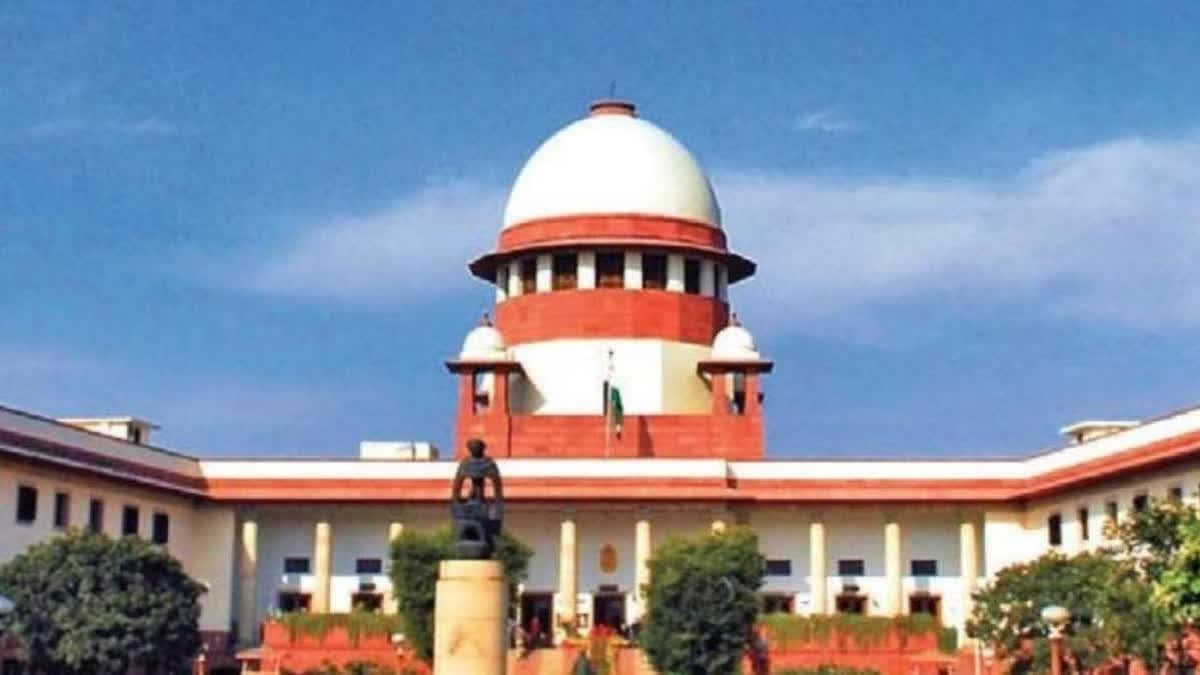New Delhi: The Supreme Court on Friday refused to entertain a Public Interest Litigation (PIL) seeking an audit of the source code used in Electronic Voting Machines (EVMs).
Petitioner Sunil Ahya argued before a bench led by Chief Justice of India D Y Chandrachud that this writ petition has been filed for single issue regarding the audit of the source code of EVMs. The Chief Justice asked what is the material before the court to doubt it? Ahya said they have not followed any particular standard and they have not disclosed any standard, and any audit has to be as per recognized standard and source code is the brain of the EVM.
Ahya said he had made three representations to the Election Commission but they preferred to keep silent on it and reiterated that the source is the brain of EVM and the matter is regarding the survival of democracy, and also tried to explain the meaning of the source code to the court.
The bench, also comprising justices J B Pardiwala and Manoj Misra, said it knows what is a source code and added that the source code of the software cannot be put in public domain, as it will make the EVMs susceptible to hacking.
The Chief Justice said when we put an application on the apex court website, we have to go through a security audit. Ahya said which standard they are following is not in the public domain, and questioned where the hash function signature is?
The Chief Justice said, “Be rest assured these standard guidelines are being followed…..the moment it is put in public domain then there is a danger that it itself will be subject to misuse….when we conduct a security audit….say for instance e-filing software or we have now allowed electronic passes for entering into the Supreme Court”.
The Chief Justice said, “If I start putting out what is the source code in the public domain, you know who will be able to hack that…..”. Ahya submitted that my petition is not about making it an open source and stressed that the brain of the EVM system is not being audited and people are voting on it.
The PIL essentially sought an independent audit of the source code of the EVMs, applying a particular standard IEEE 1028, and the source must be independently audited and the audit report be placed in public domain.
The bench noted the plea was moved before the 2019 general election and then in April 2019, the apex court then had said that it cannot go into the issues raised in the PIL against the backdrop of the general election and liberty was given to the petitioner to initiate fresh action. Ahya moved another PIL before the court and in 2020, he was allowed to make representation before the Election Commission.
The Bench was informed by the petitioner that the Election Commission has not responded to his representations, which is why he moved the apex court.
The top court said: “On such a policy issue, we are not inclined to issue directions which have been sought by the petitioner. There is no material before this court to indicate that the Election Commission is not taking suitable steps to fulfil its mandated…..we are not inclined to entertain the petition…”.
Also read: SC issues notice on plea seeking FIR against Udhayanidhi on his remarks on Sanatan Dharma



